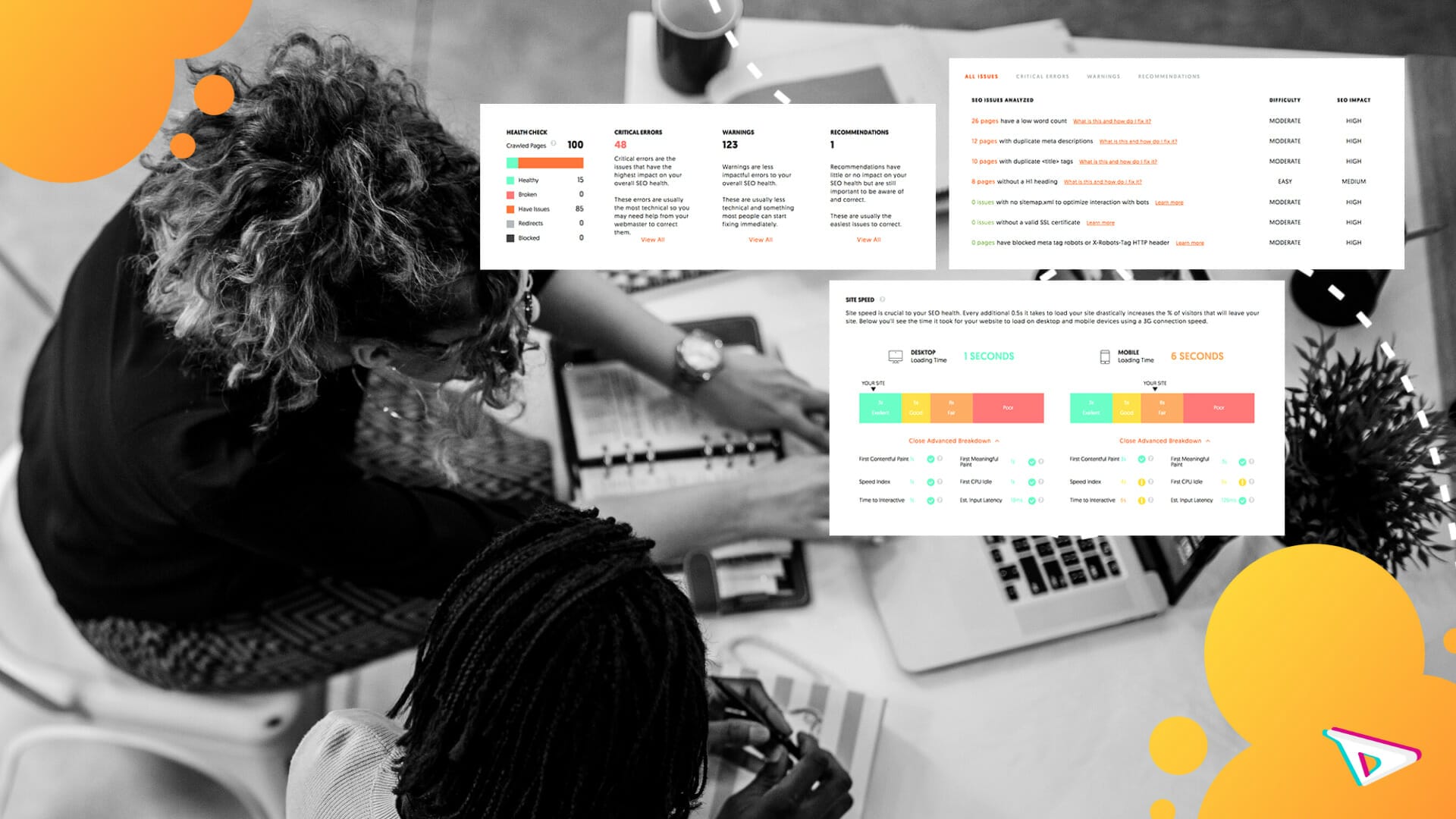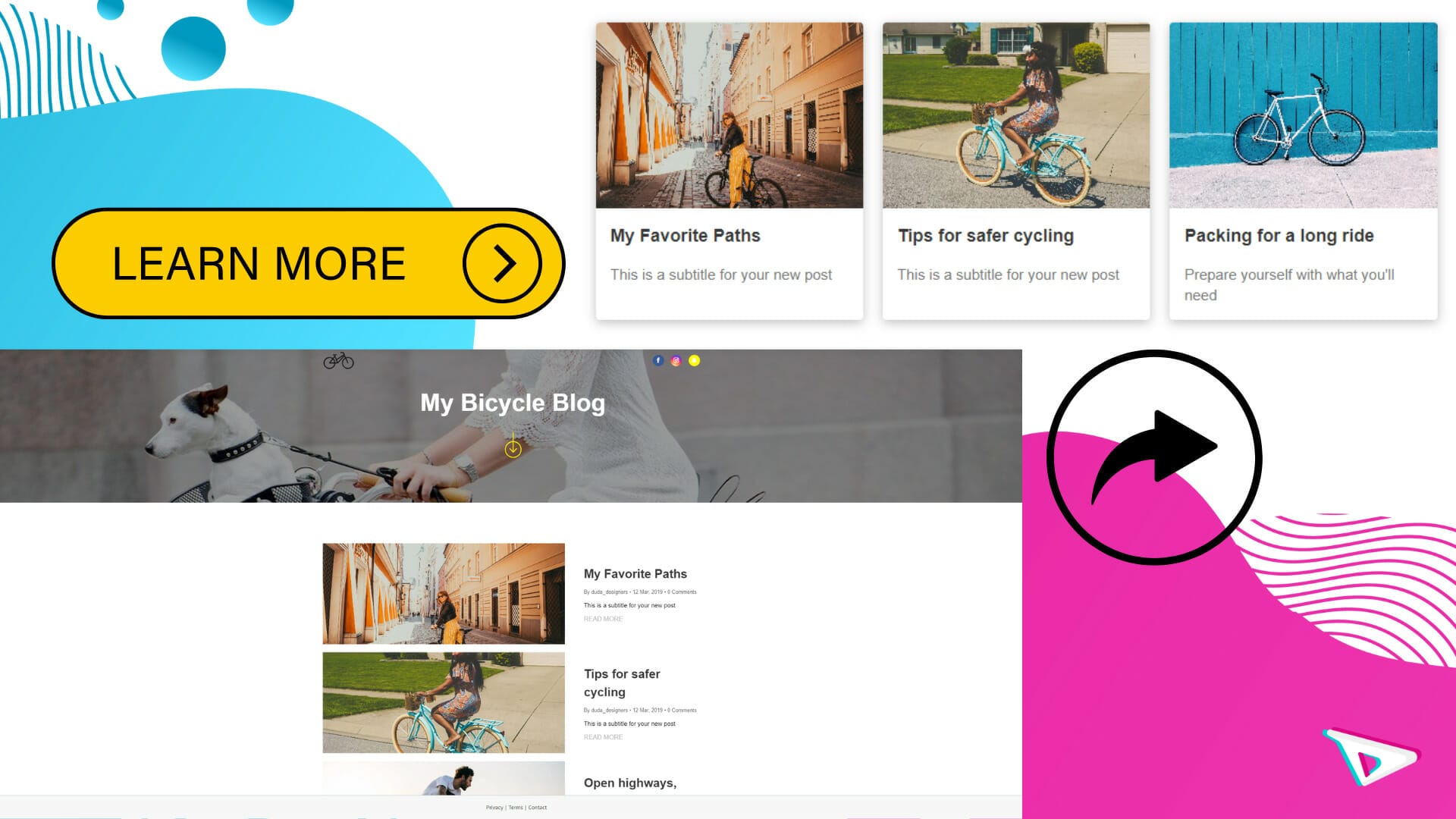Unlocking the Power of Backlinks: The Ultimate Guide to Boosting Your SEO Strategy.

What is the Importance of Backlinks for SEO?


Backlinks are links to your website from another site. They affect your SEO, or search engine optimization because having more high-quality backlinks improves a page’s ranking. But be careful – having a lot of poor-quality links can also hurt your ranking and move your SEO score downward. In the earlier days of the internet, having more links was always better regardless of the link quality, but that isn’t true anymore because Google has changed its algorithms to weed out bad links.
How Are Backlinks Earned?


“Earned” is an important word here. Anyone can buy backlinks from websites that specialize in link-building, but this is not a good idea. Purchased backlinks are almost always low-quality and most people who buy them find that their site ranking actually goes down. Worse, if Google catches a site accepting payments in exchange for backlinks without labeling them as “sponsored,” they will penalize the site.
But there are several legitimate ways to earn high-quality backlinks:
- Work at a steady pace. Suddenly getting a lot of new backlinks appears suspicious to Google’s algorithm and may cause you problems. Gradually getting more over time as you work continuously looks more natural.
- Create high-quality, shareable content on a regular basis. In other words, your goal should be to make content others will want to share and link to. Guides and case studies are often good ideas for businesses, but if your brand personality is more playful and carefree, you might consider other types of content that really speak to your audience. Evergreen content that will continue to generate interest for some time is also better for link-building.
- Work to attain links from relevant sources. Google’s algorithms scrutinize your backlinks for their relevance to the topic at hand. If you run a sandwich shop, a link from your best friend’s costume store probably isn’t very relevant. Again, this is why it’s important to focus on earned links rather than asking for favors or exchanging links with others who need them.
- Consider a page’s PageRank. PageRank is one of several algorithms that Google uses to determine the value of backlinks, and there are a number of sites that allow you to check a site’s PageRank. When your site has more high-quality backlinks, it has higher PageRank – but so do the pages linking to your content. The higher the PageRank of the page linking to your site, the more valuable the link will be to your SEO.
- Check the content on pages that link to you. Relevant, high-quality content will make the link more valuable.
- Ideally, backlinks should drive referral traffic your way and should be from high-authority websites that people generally trust.
- Use backlink analysis software to help find pages that would provide the best quality backlinks for your brand. At that point, you can strategize about the type of content they might be interested in sharing. If you’re new to backlink analysis tools, you might consider working with an SEO expert at a digital marketing agency like Digital Delane.
“Do Follow” or “No Follow” Backlinks


You’ve probably heard of “do follow” and “no follow” links. Most marketers know that “do follow” links are better and that they should aim for these, but many people don’t know why. Both kinds of links look identical and they both work when the user clicks on them (unless they’re broken). The difference is in how they appear to Google’s algorithm: A “no follow” link contains a tiny tag in its code that says simply “nofollow.” This tag tells the Google algorithm not to pass on PageRank data so that the link doesn’t affect the page’s overall ranking. So while a “no follow” link may help to drive traffic to your site, it won’t help you with SEO.
That’s why “do follow” links are important to your SEO strategy.
What Should You Avoid When Building Links?


While there are some steps that can help improve the quality of your backlinks and their effect on your SEO, there are also choices that can decrease link quality and your overall PageRank. Here are some things to look out for when working on your backlinks. You, as a marketing director or executive, are probably familiar with some of these, but remember that other people outside your department might not be. In some situations, you may need to talk a colleague out of what they think is a strong strategy.
- Guest blogging mistakes. Guest blogging on its own can be a good way to build high-quality links if done appropriately. Your blog posts should be valuable content that is relevant to the blogger’s audience and written specifically for them. Unfortunately, some marketers or business owners may work with a link-building agency. These are different than companies that specialize in overall SEO or digital marketing, in that they only do one thing – link building. To this end, they often place blogs anywhere and everywhere. Some of these sites may have low PageRank or may have so little relevance to your topic that they harm your numbers. If you want to do guest blogging as a backlink strategy, we recommend working with a full-service agency that considers the whole picture and uses analysis tools to find the best sites for blog placement.
- Backlinks buried in headers and footers. These areas are all right for internal links, but external links here are often overlooked by Google and may come off as spam.
- Redirecting domains. Some website owners have approached backlink building by buying related domains and using them to link to the owner’s original site. Unfortunately, this is very hard to do in a way that is effective and doesn’t send up red flags for the Google algorithm. You would need a domain with excellent, clean history and a spam-free backlink profile, and these sites aren’t often up for sale. To come back to link-building agencies, these companies frequently buy sites with low PageRank and use them for clients even if they have little or no relevance to each other. This practice simply isn’t worthwhile.
- Cheap tricks and gimmicks. Sometimes website owners or link-builders will bury a link in a flashy piece of news designed to go viral or at least get clicks. These may be fake news or have misleading or sensationalist headlines, they might have bizarre headlines with no effort at explanation in the article, or they could just be a compilation of other parties’ content. In some cases, these cheap tricks may temporarily increase traffic, but in the long run, they’re bad news for your PageRank.
- Unlabeled paid links. Just don’t do this. If your website does affiliate marketing, follow the regulations and make sure sites label your links correctly. Otherwise, you shouldn’t have paid links. Websites that sell backlinks are not reputable and usually provide poor-quality links at best. Even if they did provide you with high-quality links, you’d still be at risk of Google finding out your sponsored backlinks are unpaid and punishing you for it.
- Comment spamming. Sometimes we meet business owners who thought they could get backlinks by linking to their site in various forum comment threads. They may have posted comments on threads relevant to their site’s subject matter, but even this won’t prevent problems. First, most websites that allow comments have some moderation in place to get rid of spam comments. Even if the site doesn’t can your spam (pun totally intended), Google’s algorithm will probably recognize and devalue it anyway.
- General directories. Having your business listed in a relevant directory, such as a legal directory for a law firm or a medical directory for a medical practice, is useful in other ways, such as helping people find you when they need a lawyer or doctor. But it won’t do anything for your PageRank scores as Google mostly devalues links on these sites.
- Implicit content marketing. This is another scenario we sometimes encounter when consulting for a new or small business. The business owner or an inexperienced marketer may have heard about a strategy where you hire a freelancer to write articles on relevant topics. Then the business or a third party pays to get the articles placed as “dofollow” links on various sites. These sites are usually poor quality, and the search engine algorithms will figure out what you’re doing.
- Giving away a free product in exchange for an “honest review” that includes a backlink. This is yet another type of problematic solicitation that Google tracks.
Stronger Strategies for Link Building
Developing a strategy specific to your brand and goals requires knowledge and expertise, not just in back-linking but in overall SEO planning. The best solution is to consult a digital marketing agency that can help you create a plan for your business in concert with other SEO improvement tactics. In general, the following strategies may be helpful – and if they don’t produce the desired results, they won’t make your ranking worse like some of the problematic methods we discussed earlier.
Boost Your Business with New AI Trends – Get a Free Strategy Session Today
Skyscraper Content Building and Outreach


This strategy requires using an SEO tool like SEO Spyglass or a similar application. You’ll start by selecting a topic relevant to your brand, then searching for it in the tool. Find the highest-ranking pages or articles, then analyze those to see all the sites linking back to them. Choose the top few and save them for later. Then you’ll “skyscraper” the top articles, starting with the highest ranked one. Write on the same topic, but add more detail and insight from your own personal experience, and post this piece on your website. Then contact the highest-ranking sites that linked to the original article and offer your article as a more up-to-date and complete article on the same topic.
Analyzing Competitors


This method also requires an SEO analysis tool. You’ll figure out your closest competitor websites and then analyze their pages and backlinks. Find the most-linked pages and consider their content to get ideas for your own. You may notice gaps where no one has covered a particular angle on a topic, or opportunities to produce better or improved content. As with the Skyscraper strategy, you’ll offer this expanded content to the most popular sites that link to your competitors.
Broken Links Strategy


Sometimes you and your staff are stretched thin and you simply don’t have the bandwidth or resources to create more content. With the broken links strategy, you can work with your existing content as long as you have a reasonable amount. This time you’ll use the tool to search for the topics of your existing blogs, articles, etc. For each topic, go through the list of linked pages and seek out the 404s, or broken links. Then simply contact the site administrator for each of those pages, explain you noticed a broken link, and offer your article as a good alternative.
While you’re at it, check your own existing links to see if any of them, particularly those with “dofollow” links, are broken. If so, either redirect the broken page to a live one of yours or contact the webmasters to offer them a new link as in the above example.
Guest Blogs


We discussed the issues of using firms that place a lot of content, including guest blogs, on mostly low-quality sites. However, guest blogs can be part of a strong strategy if you are instead selective, creating them only for relevant, high-authority sites. These typically have submission guidelines you will need to follow. When pitching your piece, do your best to explain why it is unique and of interest to the site’s readers. Don’t ask outright for a backlink, but the odds of you getting one are good if you’re selected as a writer. If you’re asked for a bio, be sure to include a link to your business.
Conclusion
Above are a few general strategies, but you will see the best results from a plan tailored for your brand. If you want to learn more about SEO, backlinks, or other digital marketing services, please contact Digital Delane for a free consultation.

















